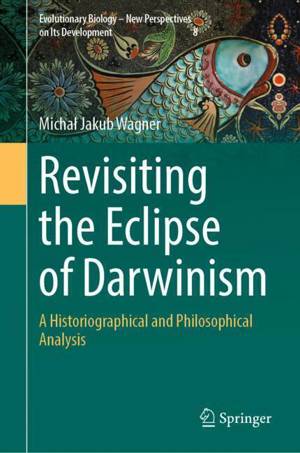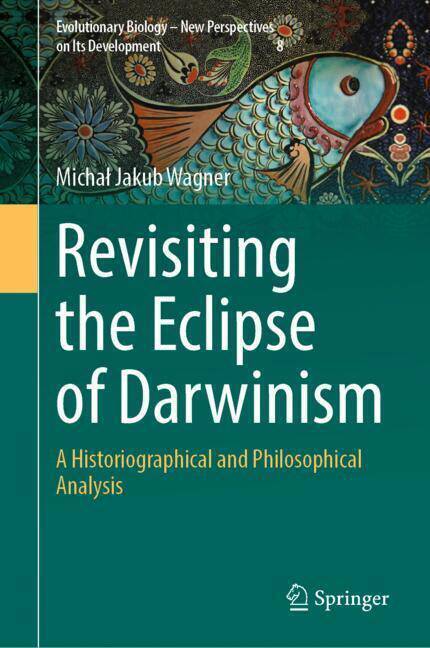
- Retrait gratuit dans votre magasin Club
- 7.000.000 titres dans notre catalogue
- Payer en toute sécurité
- Toujours un magasin près de chez vous
- Retrait gratuit dans votre magasin Club
- 7.000.0000 titres dans notre catalogue
- Payer en toute sécurité
- Toujours un magasin près de chez vous
Revisiting the Eclipse of Darwinism
A Historiographical and Philosophical Analysis
Michal Jakub WagnerDescription
This book focuses on a critical reexamination of two prominent categories used in modern historiography of biology - "the eclipse of Darwinism" and the "modern synthesis". The main objective is to critically analyze the main existing interpretations of the "eclipse of Darwinism" and emergence of the "modern synthesis", with particular emphasis on the philosophical assumptions adopted in these interpretations. Thus, interpretations by Ernst Mayr, Peter Bowler, Mark Largent and modern historians who challenge these perspectives are discussed and critically evaluated
The analysis of the above interpretations makes it possible to determine how the philosophy of science limits the interpretation of the history of a given field, and also serves as a starting point for proposing an original interpretation of the above period in the history of evolutionary biology. The ultimate goal will therefore be a proposal of a new interpretative perspective to answer following questions: Why did the "eclipse of the Darwinism" occur? How should its origins to be understood? Why did it end (and why did the "modern synthesis" emerge)?
Main thesis of this book is that the "eclipse" was a direct response to inconsistent ontology upon which Darwin built his theory of evolution. Darwin referred to terms and concepts rooted in the philosophy of essentialism, which was problematic, because he tried to apply these essentialist concepts to his vision of the ever-changing nature. Therefore, all of the anti-Darwinian theories characteristic to the "eclipse of Darwinism" and later to the "modern synthesis" were produced in an attempt to reconcile essentialism with evolution and thus to correct Darwin's philosophical "error."
The book will appeal to biologists, philosophers and historians alike.
Spécifications
Parties prenantes
- Auteur(s) :
- Editeur:
Contenu
- Nombre de pages :
- 239
- Langue:
- Anglais
- Collection :
- Tome:
- n° 8
Caractéristiques
- EAN:
- 9783031725920
- Date de parution :
- 02-11-24
- Format:
- Livre relié
- Format numérique:
- Genaaid
- Dimensions :
- 156 mm x 234 mm
- Poids :
- 530 g

Les avis
Nous publions uniquement les avis qui respectent les conditions requises. Consultez nos conditions pour les avis.






